Discipline Filter: Arts
-
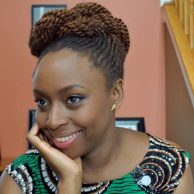
Adichie, Chimamanda Ngozi
Storyteller: Humanizing Stories for the World
Adichie,
Chimamanda Ngozi

Adichie, Chimamanda Ngozi
Storyteller: Humanizing Stories for the World
“Literature,” says Chimamanda Ngozi Adichie, “is the best way of humanizing people.” Considering a character’s motivation, she believes, “forces us to look beyond stereotype.” An internationally celebrated author, Adichie conducts workshops for young writers in her native Nigeria, where she emphasizes that “storytelling is rooted in our political, our social, our emotional realities,” and encourages participants to read carefully, write enthusiastically, and keep their day jobs.
Educated in both Nigeria and the United States, Adichie completed a master’s degree in the Writing Seminars at Johns Hopkins in 2003, followed by another in Africana Studies from Yale in 2008. That same year, she received a MacArthur Foundation “genius grant.” Her published work, which includes three novels, short stories poems, essays, and a play, has been translated into more than thirty languages. She has received many accolades, including the Commonwealth Writers’ Prize for Purple Hibiscus, the Orange Prize for Half of a Yellow Sun, and the National Book Critics Circle Award for Americanah. In 2016, Adichie returned to the Homewood campus to receive a Doctor of Humane Letters degree honoris causa from Johns Hopkins “for always striving to put a human face on life-changing events and class struggles, to force a greater understanding.” The American Academy of Arts and Sciences inducted Adichie into its 2017 cohort, one of the highest honors for intellectuals in the United States.
Critics praise Adichie’s imaginative writing, which is often based on fact. Her work is centered on Nigeria and Africa, “because it is what I know and it is where my heart is.” She sees writing as her vocation, something she “was born to do.” Adichie admits to being “an unrepentant eavesdropper and a collector of stories. I record bits of overheard dialogue. I ask questions. I watch the world.”
Adichie is in great demand as a speaker internationally, and has given two TED Talks viewed by millions. Recognizing that she now occupies a position of privilege, Adichie encourages her listeners to confront racism and find effective ways to negotiate sexism. ”My own definition of a feminist is a man or a woman who says, ‘Yes, there’s a problem with gender as it is today and we must fix it, we must do better.’ All of us, women and men, must do better.”
-
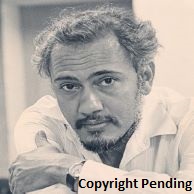
Boxer, David
Distinguished scholar and champion of Jamaican art
Boxer,
David

Boxer, David
Distinguished scholar and champion of Jamaican art
Art historian David Boxer was just twenty-nine years old when, in 1975, having just completed his dissertation at Johns Hopkins, he returned to his native Jamaica to become director and curator of the newly established National Gallery of Jamaica. His doctoral studies at Homewood had concentrated on the modernist painter Francis Bacon, one of the most important British painters of the twentieth century, whom Boxer had spent two weeks interviewing the previous year. Bacon’s psychologically intense, semi-abstract figurative imagery later influenced Boxer’s artistic efforts, which included paintings, collages, and mixed-media installations—often depicting literary and history-related themes, including slavery.
Substantially broadening his fellow Jamaicans’ understanding of their own culture, Boxer’s first exhibition for the National Gallery portrayed Five Centuries of Art in Jamaica, where he argued that art on the island had a much longer history than had been recognized previously. By the time he stepped down as director in 2013, Boxer had mounted more than fifty major exhibitions of Jamaican art, including one for the Smithsonian in 1983 that later formed the basis for the National Gallery of Jamaica’s first permanent exhibition. Boxer also steered the expansion of the museum’s holdings from about 230 works in 1974 to more than two thousand.
As a private collector, David Boxer amassed one of the most comprehensive collections of Jamaican art, photography, and furniture, as well as an exceptional collection of rare art books. Boxer also encouraged the efforts of Jamaica’s untrained, self-taught artists who created their paintings, sculptures, and carvings in the rural towns and villages where they lived. He called them “Intuitives,” and believed they helped to shape Jamaica’s national cultural identity. “Theirs is not ‘art for art’s sake,” he maintained, “but rather, as someone once described African art, ‘art for life’s sake.’”
Regarded as a leading scholar of art in the Caribbean region and arguably the most eminent authority of Jamaican art, Boxer left a distinguished legacy. In August 2016, Jamaica’s prime minister bestowed the Order of Jamaica (considered the equivalent of British knighthood) on David Boxer, acknowledging that he was being recognized “not just his personal artistic genius but even more so for what you have done for countless others in your unyielding passion to foster the growth of Jamaican art.” Writing about his “colleague, mentor, and friend” not long before Boxer died, art historian Edward M. Gomez declared Boxer “a towering figure in the recent intellectual history of the Caribbean region, whose work as an educator and activist helped shape the modern cultural identity of his small nation in the post-colonial era.” In their final conversation Boxer told Gomez, “We make art because we have—or we think we have—something to say and because we hope that, somehow, it will endure.” The pioneering researcher, thinker, collector, teacher, and working artist was seventy-one years old when he died at the end of May 2017.
-
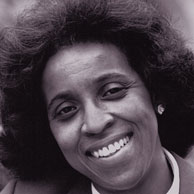
Cline, Eileen Tate
Dragon-slaying music maker
Cline,
Eileen Tate

Cline, Eileen Tate
Dragon-slaying music maker
The idea that the arts are integral to humanity shaped Eileen Cline’s life and her tenure as the dean of the Peabody Conservatory. “So many children, by the time they are 5 or 6 years old, think that the arts are only about being able to draw and sing at a level possible only for a ‘chosen’ few,” she has said. “I would like to do whatever I can to slay those dragons.”
An accomplished pianist, folk dancer and singer, Cline, now retired, dedicated her career to expanding arts opportunities for others. She taught music at the elementary, high school and university levels, owned a piano studio, founded the Boulder Children’s Choir and served as executive director of the Neighborhood Music School in New Haven, Connecticut.
In 1983, Cline became the first black to be appointed dean of the Peabody Conservatory and the only woman dean, at that time, of a major American conservatory of music. Cline’s dedication to inclusiveness enriched and expanded the Peabody community.
When her tenure ended in 1995, Cline continued to serve Johns Hopkins for four additional years as a senior university fellow in arts policy at the Institute for Policy Studies, and to influence music education policy through her membership on the boards for the National Endowment for the Arts and the American Symphony Orchestra League.
-
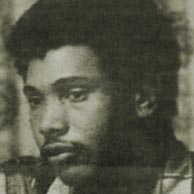
Guess, John F.
Catalyst for campus change—Black Student Union Pioneer
Guess,
John F.

Guess, John F.
Catalyst for campus change—Black Student Union Pioneer
Empowered and inspired by the civil rights movement, students John F. Guess and Bruce Baker presented 12 demands to Johns Hopkins University administration in 1967. They sought such changes as increased black student enrollment and black faculty recruitment, a library section for black authors, and Johns Hopkins-Morgan State mixers.
A year later, Guess, Baker and others established a Black Student Union at Johns Hopkins. Although similar groups had already formed at other university campuses, students at Johns Hopkins found their initial requests for official recognition rebuffed. The student council expressed concern that this student union would be seen as hostile and divisive. Continued and mounting pressure from Guess and Baker caused the student council to reconsider its decision and grant official status in 1969.
The Black Student Union remains an influential group at Johns Hopkins, promoting diversity, respect, and understanding. The group also hosts events and lectures, organizes community service projects and works to improve the climate for black students at Johns Hopkins.
Its founders continue to serve as prominent community leaders.
Guess, a native of Houston, became the first BSU chairman and the first black president of the university’s student council. He is chief executive officer of the Houston Museum of African American Culture, managing consultant at The Guess Group Inc., a real estate services company and a Partner in the Dallas-based Access Seminars and Consulting Services. He is an active art collector whose works have been shown in museums across the country and in Europe.
-
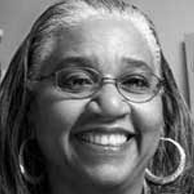
King-Hammond, Leslie
Force of art
King-Hammond,
Leslie

King-Hammond, Leslie
Force of art
Leslie King-Hammond, graduate dean emerita of Maryland Institute College of Art, stands at the center of the arts community in Baltimore and is a powerful force far beyond this city. She is chair of the board of the Reginald F. Lewis Museum of Maryland African American History and Culture and a board member of the Creative Alliance. She has served as project director for the Ford/Phillip Morris Fellowships for Artists of Color, an executive board member for the International Association of Art Critics, president of the College Art Association, a trustee of the Baltimore School for the Arts, and a trustee of the Baltimore Museum of Art. She has contributed to major exhibitions and publications for Studio Museum in Harlem, the Met Life Gallery and Columbus Museum of Art.
King-Hammond arrived in Baltimore from New York in 1969. A Horizon Fellow, she earned both her master’s and doctoral degrees from Johns Hopkins University. In 1976, she was appointed dean of graduate studies at MICA. After retirement in 2008, she was named founding director of the Center for Race and Culture at MICA, and she continues to teach art history at the school.
-
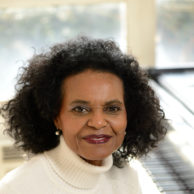
Rowe, Devonna
An Operatic Artist for All Ages
Rowe,
Devonna

Rowe, Devonna
An Operatic Artist for All Ages
Devonna Rowe has traveled the world as an opera singer and arts educator, bringing her voice to theaters and opera houses in such places as Europe, Africa and Asia. A classically trained singer with an extensive range, her operatic roles include the Countess in Mozart’s “The Marriage of Figaro,” Clara in Gershwin’s “Porgy and Bess,” and La Zia Principessa in Puccini’s “Suor Angelica.”
However, it’s her role as voice instructor to students of all ages at Johns Hopkins Peabody Preparatory that Rowe counts among her proudest roles. “At Peabody, it’s about working with people at all levels to help them not only develop their vocal skills but their musical skills as well.” It’s also about giving back in recognition of those who were instrumental in her development as an artist and music educator.
A native of Wilson, N.C., Rowe grew up singing in church where she sang her first solo at the age of 3. During high school, she studied and performed in Los Angeles, California. She went on to receive an undergraduate degree in music education and a masters and doctorate in vocal performance. Along the way, Rowe received a music fellowship from opera singer Leontyne Price and began a teaching career that would span more than three decades and include stints at the University of North Carolina at Chapel Hill, Aspen Music School, Vanderbilt University, and Morgan State University.
Rowe cites her former students who have earned graduate degrees in voice from Yale University, the Julliard School of Music and New York University as success stories. These students have gone on to professional careers performing with the Washington Opera, the Opera Theatre of Saint Louis as well as Off Broadway.
Rowe’s career extends beyond teaching voice. In addition to being on Peabody Prep’s faculty for the past 13 years, she is a member of the Black Faculty and Staff Association. A specialist in Integrated Arts Education, she works in Baltimore and throughout Maryland with students in grades K-12 teaching youngsters about African American history through language arts, music, dance and improvisation.
Working as a consultant for the John F. Kennedy Center, Rowe has helped to create programs that have had an impact on arts education in the United States. Most recently she developed a summer program for youth at the Hosanna School Museum, a historic site that was the first public school for African Americans in Harford County Maryland.
-
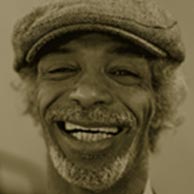
Scott-Heron, Gil
Influential “bluesologist,” Voice of a generation
Scott-Heron,
Gil

Scott-Heron, Gil
Influential “bluesologist,” Voice of a generation
Gil Scott-Heron described himself as a blues scientist, a “bluesologist.” Others describe him as an influential poet, musician, recording artist, author and social critic.
He is renowned for his spoken word compositions in the 1970s and 1980s, and his best known works include “The Revolution Will Not Be Televised,” “Winter in America” and “Pieces of a Man.” Throughout his career, he and his collaborators took strong social and political stands, crafting works that fused jazz, blues, soul and other musical styles.
Scott-Heron earned a master’s degree in creative writing from Johns Hopkins University in 1972, though he had never completed an undergraduate degree. He passed away in May 2011.
-
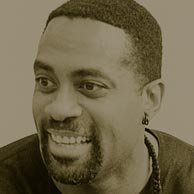
Thomas, Daniel Gary
Front man for jazz studies
Thomas,
Daniel Gary

Thomas, Daniel Gary
Front man for jazz studies
Playing jazz saxophone and flute has taken Baltimore native Gary Thomas around the world. As the Peabody Institute’s director of jazz studies and the Richard and Elizabeth Case Endowed Professor in Jazz, he shares the musical knowledge and experiences gained on those world travels with students and faculty.
Thomas founded the jazz studies degree program at Peabody in 2001 and is the first black person to become a degree program director at the conservatory.
JazzTimes magazine called Thomas one of “the more uncompromising and original saxophone voices” of his generation. He has performed and/or recorded with legendary musicians, including Miles Davis, Pat Metheny, Cassandra Wilson, Wynton Marsalis, McCoy Tyner, Kevin Eubanks, and Ravi Coltrane, and he has been a member of the Herbie Hancock Quartet and Jack DeJohnette’s Special Edition Band. DownBeat magazine named two of his recordings among the best of the 1990s.
Thomas has said, “The students want the teacher to be able to do what he’s trying to teach them to do. I liked being a [band] leader at times. I’m sort of the same thing at Peabody.”